Note: This post may contain affiliate links which means if you click on a link and purchase an item, we will receive an affiliate commission at no extra cost to you.
Date: February 3, 2022
Episode: WeNomad Episode 1
Title: David Lahav on Digital Nomading, Mindsets & Making Local Biz’s Remote
If you’re looking to create a life of freedom and fulfillment, make sure to listen to this episode of the WeNomad podcast.
Table of Contents
About David Lahav
David Lahav is a digital nomad and lifestyle entrepreneur. He’s the founder of Lahav Media and he’s since acquired multiple 7-figure service-based businesses. He spends the vast majority of his time in the United States and travels for 3-6 months each year. He’s lived in Israel, the United States, Bali, Colombia, Argentina, Peru, Brazil, and 15+ other countries.
Through his experiences, he’s learned that it’s possible to have a great lifestyle and be successful without sacrificing time or happiness. His goal is to show others that there’s an alternative to the traditional “grind & hustle” message and help them find their own path to success.
In This Episode…
David and I discuss the importance of balance when it comes to financial freedom and internal fulfillment. We talk about how the two are interconnected and why you should focus on both in order to create a life you love. We also discuss how to overcome limiting beliefs, how to find your tribe, and how to convert a local business into a location-independent business.
Key Takeaways
1. How To Overcome Limiting Beliefs (With The People Around You)
Timestamp: 00:00 to 03:13
- Consciously choosing the people you spend time with can inspire and upgrade your life.
- Limiting beliefs are strongly held, mostly subconscious beliefs that prevent you from doing or achieving what you want in life. They limit your potential and can move you to act against your own self-interests. They cause you to think irrationally and hold you back in life. Most of the time, people believe their limiting beliefs to be true, but they’re actually just beliefs that can be changed.
- You can overcome limiting beliefs by surrounding yourself with people who have the same mindset as you want to have. If your close network of people doesn’t live the life you aspire to live, then find people online and connect with them through calls or other forms of communication.
2. How to Find Your Tribe & Be Strategic About Where You’re Living
Timestamp: 07:55 to 11:02
- Be strategic about where you live. Consider what type of community you want to be a part of and what type of people you want to associate yourself with.
- Consider your limiting beliefs and how they might be holding you back from living the life you want.
- Own your life. Realize that you’re the creator of your own reality and that you have the power to choose where you live and who you want to be part of your circle.
- Be open to change. Know that your life might look completely different in a year or two than it does now and be willing to go with the flow.
3. How To Convert A Local Business Into A Remote Business
Timestamp: 14:08 to 20:37
- David talks about the mindset shifts he went through when he began to delegate tasks to employees. He started out thinking that he was the only one that could do the necessary tasks to keep his businesses running. But after hiring employees and encountering people who were better at certain things than he was, he realized that this wasn’t the case. So, he recommends that you should try to delegate tasks too, even if you’re afraid to do so. It can be a freeing experience.
4. Internal Freedom vs External Freedom
Timestamp: 21:16 to 29:04
- External freedom is the desire to have a certain outcome or achieve a certain goal, while internal freedom is the ability to be content and happy regardless of your external circumstances.
- Most people focus on external freedom, but internal freedom is just as important, if not more so. Internal freedom allows you to be more resilient in the face of adversity, while external freedom can be taken away at any time. It’s important to find a balance between internal and external freedom and use them together to achieve your goals.
- You can find that balance by allowing internal freedom and external freedom to support each other. By using financial resources for personal growth and development, you can be more at peace with yourself. You can use these resources to support your mission and purpose in life. On the other hand, the more you pursue what fulfills you internally, the easier you’ll grow the financial side of things.
Resources & Notable Mentions:
- Outsite – Coliving + Community for Remote Workers
- Rich Dad Poor Dad by Robert Kiyosaki
- The 4-Hour Workweek by Tim Ferris
- The E-Myth Revisited by Michael E. Gerber
- Work the System: The Simple Mechanics of Making More and Working Less by Sam Carpenter
- Way of the Peaceful Warrior: A Book That Changes Lives
- DavidLahav.com
- Connect with David on Instagram: @heydavidla
Transcript
Cam 00:00
I’m curious how you’ve thought about your inner circle and the beliefs that they hold.
David 00:05
So the most important thing is the people you’re surrounded with, we impact one another, or the community impacts us. And so for example, for us, when we spent time together and we chose to be, you know, almost with each other 50% of our days in the time we spent in Barbados — that was a very conscious choice. This is a person I want to bring in my life, with his energy with his inspiration, with the way he views life. You impact me with your energy and the way you’re thinking. So, it can be a conscious or unconscious thing.
And if you look around and your partner, family, and your friends don’t live the life that you aspire to live in, that’s an opportunity to inspire and upgrade the people you hang out with, whether it is locally, physically, and these days, also online communities, books, videos, courses — they can substitute the actual people that you hang around with, because then you’re going to be like a sponge and soak up what those other people, even if it’s virtually or even one-sided, watching somebody’s course or video. You can kind of soak up their beliefs.
Cam 01:14
That’s such a good point. I’ve been thinking about that point, combined with a limiting beliefs thing, because for me, I mean, I’ve been wandering around all over the place for many years. And so most of my favorite people are not where I am. The belief that, sort of, I’m absorbing from other people.
Well, I don’t have… Like, my close network isn’t with me. Which is where… We’ve been doing this, but doing recurring calls with people or all my favorite people whose ideas and mindsets I want to seep into my mind, I have recurring calls with. And I think that’s a really powerful concept for anyone who’s in a place where they feel, let’s say, they feel trapped or they feel like they’re not around people who have the mindset of where they want to go.
They’re not around entrepreneurs, they’re not around whatever type of person they want to become — that you can build that community online. You can find those people online, you can set up calls with those people, you can absorb that energy even if you’re not in the physical location with people.
David 02:19
Absolutely. So, with the limiting belief, there is another thing worth mentioning, is most of the time, because we believe that belief to be true, we’re not even aware that it’s a limiting belief. It just… we think this is reality.
“Oh, reality is I can’t become a nomad and travel and make however much money I want to.” — I have a limiting belief.
“I can’t do this because of X. I can’t do this because of Y.
And as long as we believe that to be true, that’s going to be a reality. But once we’re even open to questioning, or maybe we see an example of someone else that has achieved the very thing that we tell ourselves we can’t, then something interesting starts happening where those before reality, limiting beliefs that we take as reality, are now becoming malleable. And we can start seeing, “Oh, this is not necessarily true. This is what I was assuming that is true.”
Cam 03:13
Yeah, I think it… I think that’s where stories are so powerful as well. Just hearing stories and breaking down the barriers of what is possible in life and hearing people’s stories who have achieved, like, who have charted new paths and figured out new things to understand, “Okay, even if no one has gone down this path before, I could go down and I can figure it out. And I can navigate it. There are no rules, there are no barriers to what I can do and how I can live.”
And on the note around who you’re surrounded by, I’d love to hear about where you’ve chosen to live. So, you’re primarily living in Boulder and then traveling off to different places as well. But I’d love to hear about your decision to… obviously, you’ve spent a lot of time in Boulder over the last 5-8 years. But your decision to really think about planting some roots there… Tell me more. Tell me more about that.
David 04:14
Yeah, so I’ve been searching for many years for a place that can be more of a long-term ground for me. And I’ve lived in Colorado on and off for the last 10 years, got to do a lot of traveling, and many times actually while traveling, I felt, “Oh, this is the environment that I’m really inspired by because it’s so easy to hang out with other entrepreneurs and other conscious, mindful people that are very open-minded and enjoy life.”
And in the past, living in Denver, for example, like it was… there was a lot of friction. So I really had to go and seek for these people and, like, find them and lure them out of their holes.
Cam 04:56
Okay!
David 04:56
This time around and I got back to Boulder through a community and a few people that were the seeds, the community I’m looking for who are entrepreneurs — conscious, really fun, and beautiful people. I got introduced to many other people just like that. So now I feel that in Boulder, I have this great community of people I resonate with and kind of have my needs met in terms of the inspiring community.
Cam 05:23
Interesting.
David 05:24
And it’s really easy. Like, there’s as many events as I can fit into my schedule that I can go and learn, develop, hang out with these people, connect.
Cam 05:33
Your experience has been transformed because of, if I’m summarizing this right, because of essentially co-living with like-minded people and then tapping in — maybe the same people — but tapping into a few people who have really opened you up to a lot of other like-minded people, and that’s just created a whole new environment and almost new experience.
David 05:55
Yeah. And to break it down even further, because of the people I befriended and lived with, I went to this weekend event that’s kind of a Burning Man style event that was camping, summer camp vibes. And there, I met my girlfriend, my partner, and through her, she has an amazing network of friends and people that are like next-level — from LA and all over the world. And now, I’m meeting those people and really enjoying that piece as well, because she opened me up to a whole world of people that I admire and are inspiring.
Cam 06:33
That’s an interesting, sort of, thought for anyone who’s thinking who hasn’t nomaded and is thinking about (I’m transitioning your home base to a nomad topic) but anyone who’s thinking about nomading, I think you can find, like, co-living spaces in almost any city in the world now.
Outsite is one of the big companies that’s doing it. So, you can find pockets of other nomads to travel away there to meet up with in cities and co-live with, which I know a lot of people’s anxieties around nomading comes around, like, how do I find good people to be around.
And the other point that you brought up that, on my own, moving to new cities experience really resonates, like, one or two key people can make a whole experience where going, like, even for me go…
I spent two months in Taipei, Taiwan. And it just so happened that one of my close college friends was living there at the same time and had an extra bedroom. And so we stayed together. And just having him there made the experience completely different than if I would’ve been there solo. And so I think it’s a really valuable point just around new cities and one person or a community and how that can transform your whole experience there.
David 07:54
Absolutely. And then the thing to think about is maybe we obviously don’t want to be too strategic and, kind of, I’m trying to get into this circle or that circle and kind of, “Oh, I need to make a good impression on this person.” So you know, so we become friends, and then kind of using people, that’s not what we’re doing. And on the other hand, we do want to ask, “Where’s the ideal place for me to be in?”
For example, if I want to be a digital nomad and I’m curious about e-commerce or productized businesses, then probably Chiang Mai is a really good place because there is a really strong entrepreneurial community for that. If I want to be in the movie business, probably I want to move to LA. There’s a really good community for that. So kind of be strategic with that.
Cam 08:40
Yeah, that’s a very good point. I’ve spent, I mean it’s… from our conversations, it feels like you spent a lot of time thinking about this. And thinking about, like, “Where is my tribe? Like the people I want to be around? Where are they? Where’s the highest concentration of my tribe or where can I carve out, like, where can I find a nice community that will feel like my tribe?”
And I thought about that, too. And for me, I think my tribe is in Bali. And that’s, that’s where I know, like, I fit in the most, and there’s the highest density of like-minded people. But I think that’s a really good point. And it makes me reflect on just being…
I’m from Boston, I spent the last month and a half in Boston. And while there’s lots of people that I love there, and lots of people I really like, that is absolutely not my tribe. Like, I think of Boston as being a very traditional city. People with traditional viewpoints of playing it safe and playing by the rules. And it’s a completely different vibe than, let’s say, Bali or even Boulder or just other cities anywhere. But for some people, that is their tribe, and yeah, I really liked that point around being strategic there.
David 09:51
And kind of the thread that ties together both what we talked about with limiting beliefs and community and people is the realization that you’re a creator of your own life. So it’s almost like getting a whiteboard. What life do I want to create? What do I want my reality to be? What kind of people do I want to be around?
Cam 10:08
The owner mentality. I like it.
David 10:10
Yeah, I choose where I live. I can live anywhere in the world.
Cam 10:14
I mean, I totally agree. It’s why back to the first topic around comments and people commenting about their limiting beliefs, I read those and I’m like, if you’re not an owner in your life, you’re powerless. You’re like, you’re an owner or you’re a passenger. And custom-building your life and feeling like you’re in the driver’s seat — obviously, we’re only in the driver’s seat so much; there’s some things that are out of control — but like believing you’re in the driver’s seat, feeling like you’re in the driver’s seat, and controlling as much as you can control is a fantastic feeling.
David 10:47
And there’s nothing in there. You can talk to some of these people and say, “Hey, if you want, you can move to Bali.”
And then those people are gonna say, “Oh, no, I can’t. I have family here. My job is here.” Like, all these things. “I don’t have a passport.” All these things.
But it’s like… you can. You just choose not to because it’s more comfortable for you or it’s scary or it requires you to not be close to your family or stop taking care of someone you’re taking care of. But you still can do it, you’re just choosing not to.
Cam 11:16
So I want to transition, I want to talk about your entrepreneurship journey, and about converting a local business into a location-independent business, which is something that you’ve done that feels very unique. And I’m sure there are a lot of local business owners who are very interested in “How can I not be on-site? How can I be in Israel or in Bali and have my local business and continue to grow it and make money?”
I’d love to start by just hearing your story — your business story. Like, tell us your business and entrepreneurial story.
David 11:49
Yeah, so I grew up in Israel. And then after my military service, I moved to the States to go to college. And back in Israel, I was reading entrepreneurship books like Rich Dad Poor Dad and then The 4-Hour Workweek. And those really inspired me to go towards entrepreneurship and starting businesses and owning businesses as soon as possible, realizing that they provide the highest amount of financial freedom.
So, when I moved to the States, even when I was traveling in Latin America for six months before starting school, I just wanted to start businesses and, you know, had 10 or 15 different ideas that I was working on that all failed. And some of them were affiliate sites. One that was, like, not a failure but not a success was an e-commerce site. That was dropshipping before this was cool. This was like 2011.
And then in my second year in college, I started a locksmith company. I met a friend in Argentina during that trip I mentioned. He was living in Denver, he was also Israeli, and he was working as a locksmith. And then during my second year in college, I joined, I was like, “Wow, this is pretty cool. I love breaking into shit, and it’s good money.”
And he taught me how to do this. Then because I already had this entrepreneurial background and knowledge about digital marketing and SEO, I just started a locksmith company and started marketing it online and very quickly started getting calls and being able to do jobs from the company I started, not just being a contractor for other companies.
So, that’s how it started. And then in the last 8 to 10 years, been growing that company and then also started a digital marketing agency, recently bought a cleaning franchise, and have been running all of those.
Cam 13:37
And just to paint the picture a little bit for anyone who’s listening, David is now doing a lot of investing and a lot of… has a whole team working for him. And you’re buying other businesses and, like, it feels like from watching on the sidelines, it feels like you’ve got a lot of moving pieces, a lot of interesting things happening.
David 13:58
Yeah, yeah, absolutely. And that’s been the journey in the last couple years has been more buying businesses, mostly locksmith businesses and integrating them and growing with them.
Cam 14:08
Let’s go deep on the process of converting a local business into a location-independent business that you manage remotely. Tell me about maybe your process of doing this and what advice you would give to someone who’s thinking about doing this?
David 14:24
Yeah. So the first thing to start with, and we already touched on is the limiting belief. It’s… potentially through my story, you might realize that you’re able to take your local business, which you previously thought cannot be location-independent… thing that can help with that is, first of all looking for other businesses that are in your industry or niche and even if it’s like a nightclub or a bar or a restaurant, you can find examples of owners that are not on site that have a really strong staff that’s managing things, and they’re in Europe or Alaska or Asia most of the year.
So, I would say that’s the place to start with. And then in terms of my own story, it kind of happened very naturally. I was first working in the business and then I hired a couple of employees. And I was really focusing on growing the business and doing all these things. And then I decided, by necessity pretty much, this business hasn’t taken off to the level that I wanted it to. And I wanted to work on a startup in Israel. So I moved to Israel for a year, and that was the catalyst. So okay, now I’m running this business completely remote. And then it’s evolved. And I came back to the states and didn’t really want to be involved in the day-to-day and brought in a partner that took on the operation.
So I guess that’s the second piece that can be helpful is, in a business that’s very operational, and a business that has vans and tools and equipment or like a restaurant, it does help to have someone that you trust be the one in person on site. So you can be the one who’s going around the world and kind of watching things from afar. And there are many people who want to live that life. My business partner, he loves that. He loves the professional aspects of the job. He loves working with the vans and equipment and all those things. So it’s been a good fit for us.
Cam 16:12
Yeah, that seems like a very, very key piece. Because for, I mean, we’re in Barbados, right? And we’re going off surfing in the middle of the day, and we’re off the grid for three, three and a half hours, obviously. I mean, I observed it firsthand, you’re very out of the operational phase, like you are not, you know, you’re not in the day-to-day operations. You’re not, as far as what I saw, you’re not taking customer calls, like you’re not, you know, you’re not in the weeds. So you’re very much out of the weeds, things are strategically high-level with other people in the weeds in managing the process.
It seems like, I imagine for a lot of people, the getting out of the weeds and having someone else take over their role in the weeds that they trust is a really key step. So talk to me about that, like, because it seems like you’ve gone through that process now multiple times. You have a cleaning business, you have like other locksmith businesses… Tell me about about hiring and managing that role and what you’ve learned and what you would tell someone else who’s trying to do that.
David 17:14
Yeah. So I would say the biggest challenge that we have as business owners who started the business is we’re so attached to everything that’s going on in the business. And we also tend to have this belief that only I can do this job and do it well. And that is the number one obstacle to releasing control and letting other people do this.
Even if there is a certain training period or a period where they’re the ones responsible, and they’re going to make mistakes, and they’re going to fuck things up… but over the long term, they’re going to learn these things. And ideally, they’re also going to be doing these things better than you could, because they’re going to wear less hats than the business owner that does everything, or they have talents in areas that we don’t have. So it went from being afraid to delegate, thinking I can only be the one who does this and does this well, to now I’m actually very happy to delegate and I have many employees in the businesses that do things way better than I ever did because they’re better at it than me.
Cam 18:16
So big, big mindset shift for you there.
David 18:19
Yes. And this is something everybody I… every business owner I talked to who went through this process runs into these areas where there are certain things, let’s say, in my digital marketing agency, I thought that in terms of building the site and making the copy and the design and the copywriting, I thought no one can do this better than me. This is like my magic. And then I hired someone — this great, wonderful designer, and my websites that I designed looked like shit compared to the ones that he designed.
Interesting. That’s a powerful realization.
So every time… so the advice would be every time that you want to bring someone you want to delegate, you want to create more freedom for yourself, and you have the thought come up like, “Oh, I can’t delegate this.” Try. Delegate it anyway.
Cam 19:08
What resources would you recommend to someone who’s navigating this journey? Whether it be a book, whether it be a podcast, I mean, are there specific things that really helped you that you think could help someone else?
David 19:23
Yeah, so the couple of books that I would recommend… one of them is called The E-Myth Revisited. I think it’s by Michael Gerber. And the other one is Work the System by, I think his last name is Carpenter, Sam Carpenter, something like that.
And what those books really help with is the mindset piece. Both of these authors went through this process themselves and helped thousands of businesses do the same. And then you really realize, “Oh, my business isn’t special. This is how it’s going to be done.” I get… like we talked about with limiting beliefs. I get almost a manual on how can I get the same results that these people have achieved.
Cam 20:03
That’s some great stuff. I think the… I imagine that this topic is going to become increasingly more popular in coming years, like just with the rise of remote work, and more people wanting to be a part of that and wanting to live wherever they want. But I could very much understand and I’ve seen it firsthand with friends, where they have a physical business, and they’re kind of trapped in the operations in the day-to-day, and they haven’t been able to step out. So that is gold.
David 20:37
One of the key parts that I recommend for local business owners who want to go remote is to be prepared for a short-to-medium-term time when they’re going to be doing more work and making less money, because the business is not going to run as well as you do with new employees that you’re delegating to. And it’s totally worth it. So at least for me, it’s always been worth it. Freedom has been the number one priority. And I’m willing to make less money and work harder in a short-to-medium term in order to win this freedom to be location independent and to have a lot of freedom for the business.
Cam 21:16
That makes a lot of sense. That makes a lot of sense. And that’s a good segue into the topic around, like, optimizing for internal and external freedom and optimizing your life for freedom, which obviously, I have my site called Freedom Is Everything, this is the Freedom Is Everything podcast. Like, here we are. Talk to me about freedom in your life and how you think about that.
David 21:40
So, I think I started from the financial freedom and looking for freedom on the financial/monetary side of things. And the more I was working on that, and the more I was able to achieve more of that. And granted, I’m not in a place where I can quit for the rest of my life and retire, but I’ve been in a place where I’ve had to work 5 to 10 hours a week and be able to take extended time off and live in around the world and still make a six figure income. And in, this in a way, that’s kind of like almost maximum external freedom.
Like okay, you know, once you make millions, tens of millions, you can have private jets and stuff like that and that’s even more freedom, but having a lot of freedom of time, freedom of experience, that’s kind of the saturation of the external freedom.
And then more and more, I realized that the real game is internal. So it’s an internal job, it’s not an external job of how much money I have, how much property I own, what car do I drive… It’s more of an internal game of how do I feel? How much control do I have on my internal workings in response to whatever it is that’s happening?
Cam 22:51
Interesting, interesting. I like that.
One layer to this is within my community of entrepreneurial friends, you’re probably one of the most, like, spiritual and aware people that I know. So I’d love to hear on that note a little about, kind of, your spiritual journey and how you’ve gotten to that perspective on internal freedom and viewing it in that way.
David 23:20
Yeah. So I would say that the biggest part is through experience. At any given moment, we have a little story: “Once I achieve X, then I’m going to be happy, then I’m going to be free.”
And the more you go through that experience, and you actually achieve it, and then you experience something strange: You don’t experience what you thought you were going to experience. You have maybe this burst of joy that’s either momentary or can last, you know, a few weeks or a period of time. And then you find yourself right back at square one. What do I do with my life? Feeling dissatisfaction. And kind of realizing, oh, there’s something in our mind, that’s just “Rinse, repeat.”
We make up a story. Once I do something, once I achieve something, once I own something, then I’ll be happy. And we always push happiness and satisfaction and contentment into the far future. And then we achieve that, it doesn’t happen. And we just reset the cycle. So that has been like a big experience is that, “Okay, let’s look internally. Let’s look at what’s going on internally. How much freedom do I feel internally and going on this internal journey and exploration?”
And then in response, what I’ve been noticing as opposed to the other external factors, that’s something that has given me results that I could feel every day at any given moment.
So to give some examples: In the past, when something — some crisis — would happen in the business, I would go through an emotional roller coaster, and my life would go to shit in terms of happiness and contentment. And because I’ve been doing this internal work, I’ve had things happen in the business like break-ins, employees quitting — yeah, things really not working well — and because of this strong resilience, internal grounded presence, I realize, like, nothing that happens in the business… like the business could even fail completely, go bankrupt, and I’m still going to be happy and satisfied and realizing I’m the person who created the business. So if this business goes bust, okay, I can create 10 others. I can create things that are even better. So there really is nothing I’m afraid of.
Cam 25:31
Man, that’s a really good point. The piece about happiness not being at the end of the tunnel and it’s not like an external destination to arrive at because of some achievement resonates so deeply, because I feel like that was what was kind of subconsciously programmed into my brain.
And when I started nomading and went on my real entrepreneurial journey, I had to unpack that and try to reprogram that. And that I feel like it’s such a big, powerful topic and within Western society, it’s something or feels like the mainstream thinking is just so off. And even, I mean, you get successful people like, it was I think Jim Carrey said, he’s like, I wish everyone had a million dollars to realize that like, this would not solve their problems. And this would not, like, lead to the perfect life that they envisioned.
And yeah, I think it’s so right. For me, it took nomading, like it took leaving my home environment and breaking out of that and spending a lot of time solo for me to have that kind of like “aha” moment. But yeah, I love how you, I mean it feels like we’ve both been on a journey where at the same time, it’s been like an entrepreneurial and like financial journey of freedom, as well as like internal and mindset freedom journey of breaking free of different things that we realize no longer serve us and putting in like new programming.
And yeah, I love that you’ve been on that journey. I feel like it’s such a powerful thing for anyone listening. Which is I think you’re a prime example of this, that your mindsets can lead to dramatic shifts and lead to whatever life you want.
David 27:29
And I want to add on that. So we have the tendency of seeing things as black or white, right? Either it’s freedom is external or it’s internal. Either I become this super successful person who’s very rich…
Cam 27:42
Freedom is everything. Freedom is everything.
David 27:45
Exactly. Or all of that is crap. It’s only internal. Go be a monk in some monastery. And the beauty is that you can find a balance between the two. And the balance is, “What kind of life do I want to lead? What is my mission? What is my purpose?”
Like, it’s coming from somewhere deep within you that then shows you how much resources do I actually need for that, and it’s very grounded and balanced.
And then they start supporting each other. Having more financial abundance helps you reach more of your internal goals and the mission that you want to do. And having the internal focus and satisfaction and resilience and fearlessness helps you achieve and create more in the financial. So they’re not two separate things. But you can merge them together to what’s right for you, your individuality, your life purpose, your experience, and what you’re most inspired.
Cam 28:41
So deeply agree with what you just said. It’s why I mean, it’s a big reason why, like my site and my focus isn’t just about financial freedom or isn’t just about like the mindset piece. I do think it’s all interwoven. And it’s hard to dissect the different ones apart.
And on that level, I feel like when you look at a lot of, I guess, like a lot of entrepreneurship sites and content, a lot of it is very, let’s say it’s very financial-freedom focused, which is fantastic. But I view that’s just, it’s one piece of a bigger puzzle. Like life itself, like living a great life isn’t necessarily about financial freedom. That’s like one key piece, but there’s many others. And I really feel like you hit the nail on the head there.
So I think we should wrap this up with some quick rapid fire questions.
David 29:41
That’s good.
Cam 29:42
Really, really appreciate your time here. This has been great, man. We need to- Hopefully we’ll get some time in the water surfing sometime soon.
David 29:50
Absolutely.
Cam 29:50
What is your favorite book?
David 29:52
Well, I would say the classic one. The 4-Hour Workweek is a really good one. And more recently, one that’s been fun for me on more of the spiritual side that I think also is applicable to people who are more on the getting started one- It’s called the Way of the Peaceful Warrior.
Cam 30:09
And what small change has made a big difference in your life?
David 30:12
Meditation. Meditate, meditate. Twice a day, Vedic meditation.
Cam 30:18
And what is one thing under $100 you can’t live without?
David 30:23
Probably this thing I have right in front of me which is a yeti cup. It’s been a game changer in hot drinks and how long they stay hot and you can carry them with you.
Cam 30:34
And if you have 20 seconds to live, what message would you share with the world?
David 30:38
20 seconds to live… I would share a message about love. How important it is, how beautiful it is, and how we have it right here in front of us with everyone that we interact with.
Cam 30:49
Last question is: How can people learn more about you and your work? Where can they find you online?
David 30:54
Yeah, so the best place right now to find me online is on DavidLahav.com. And also, I don’t invest much in social media at the moment, but always happy to connect through Instagram @heydavidla
Cam 31:08
Awesome. And I’ll put links in the description. David, appreciate having you here. This has been a pleasure. Great to see you as always and we’ll have to do this again.
David 31:17
Thank you, Cam. Hope to see you again soon. And it’s been such a pleasure. Thank you.


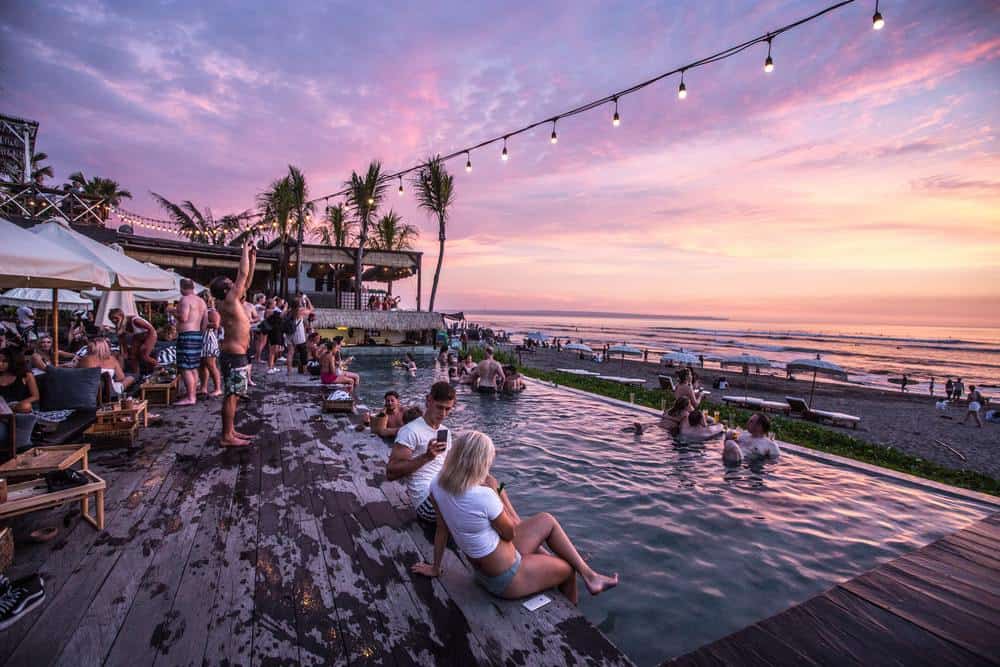
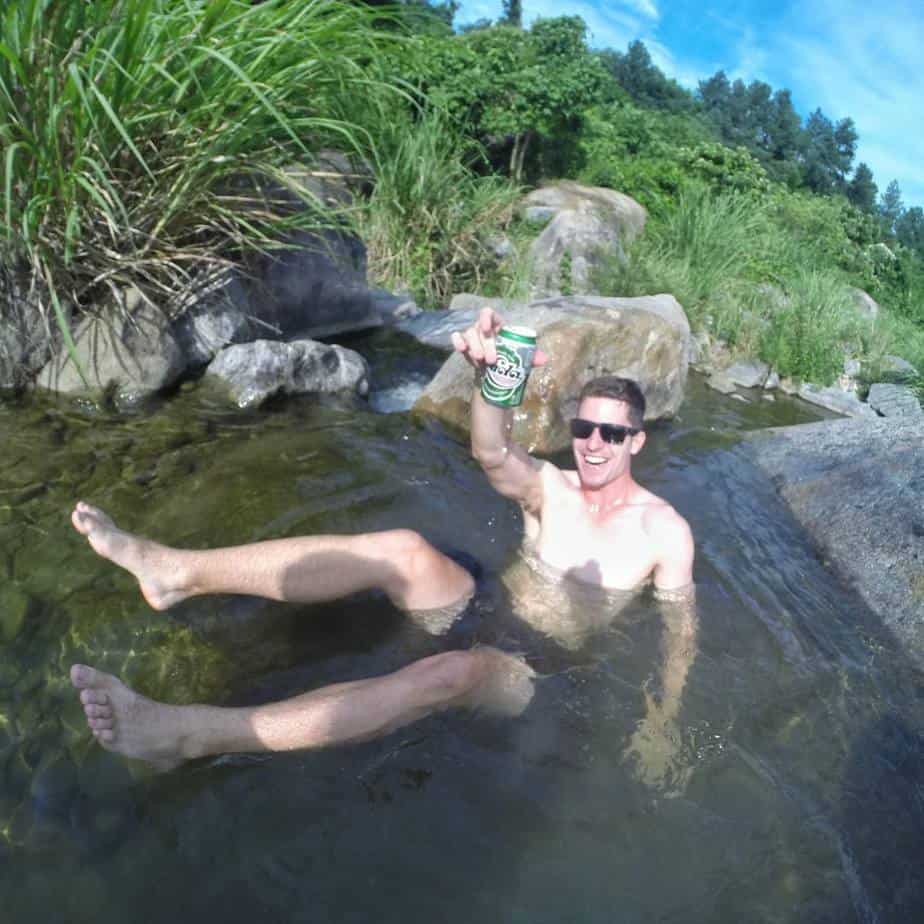
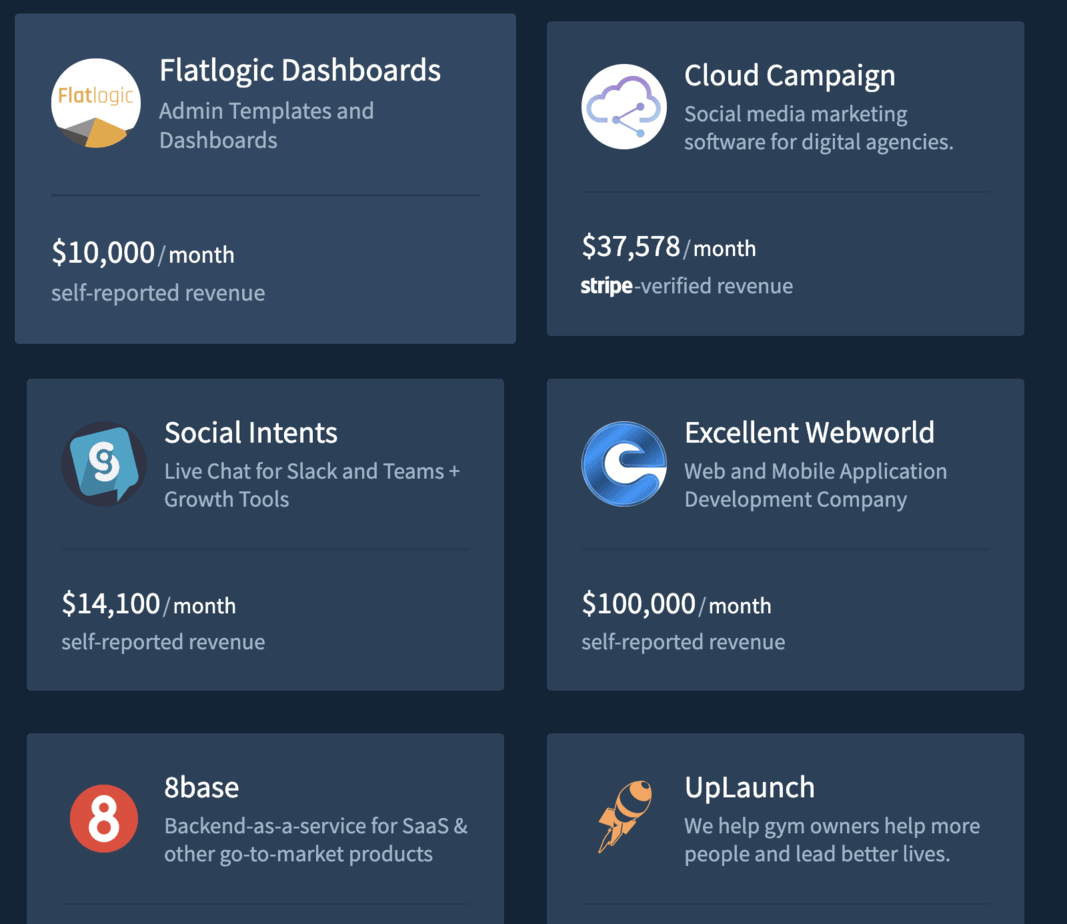
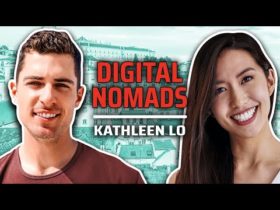
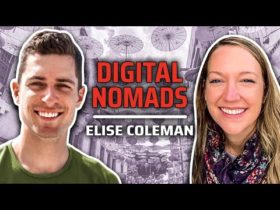
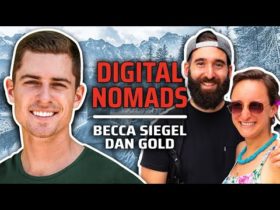
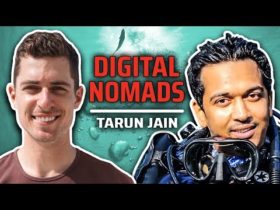
Leave a Reply
View Comments